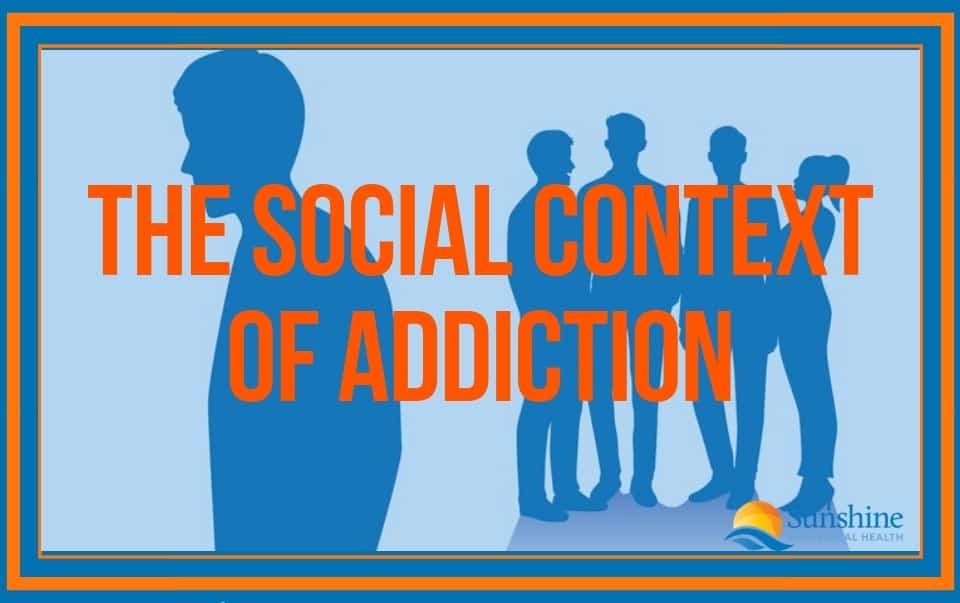
Many of us may be aware of how illicit substances affect the body. Whether a person takes alcohol, street drugs, or even prescription drugs, the explanation remains the same–the brain chemical composition changes. With continuous intake, one may be susceptible to drug tolerance, dependence, and finally addiction. These are attributed to the changes that take place in the brain.
There are studies on how unnatural dopamine levels are related to substance addiction. Some of them have even proved that continuous drug use causes certain parts of the brain to become hypoactive during its natural state, which reinforces a person’s continued drug habit.
However, it is important to understand that addiction is a complex illness. Just like a piece of a puzzle, a single piece won’t help us create a bigger picture. Neurobiology helps us understand the mechanism of the brain, but there are other factors that can affect a person suffering from substance abuse.
The social side of things
According to a study published in 2016, addiction treatment is yet to make significant advances. They hypothesized that the possible reason why this is happening is due to a disconnect between the neuroscience and the social context of addiction. So let us look at the social causes, social factors, and social management of drug abuse. Even social drug abuse, which is a hot topic at this moment.
They highlighted two terms which are common features of human addiction: progressive social exclusion and marginalization. These are defined as:
Progressive social exclusion
This is a process where an individual is blocked access to rights, opportunities, and other benefits of which a majority of the population is part of. Substance abuse often excludes people from having work opportunities and socialization with others. Whether caused by the individual or done by others, the gradual exclusion of those suffering from substance abuse is a possible factor for continued use.
Marginalization
Marginalization occurs when people of a certain group are treated as a lesser value or considered insignificant. The lack of understanding that substance abuse is an illness may cause people to judge those suffering from it. This sociological factor may additionally be one of the causes of why people are hesitating to seek treatment.
Now that we have understood how the social context of addiction can affect a person’s chance in recovery, what are the implications of this study and how should we respond?
Implications of social problems related to addiction
Incorporating a heterogeneous form of support
Often, support groups are comprised of individuals with the same conditions and undertakings. Although the concept of empathy and encouragement is highly active in these settings, it may also be helpful to integrate other individuals who are not suffering from substance abuse.
Not only is this beneficial to prevent social exclusion, but it can also provide awareness for the non-sufferers.
Increasing information campaigns about the nature of addiction
Although many government and private institutions have spread information about substance abuse awareness, much is left to be done to help others understand the nature of addiction. Even this brings up the psychological model of addiction.
A commoner’s mindset would be seeing the sufferer as someone who “just wants to keep on doing it”. However, many studies prove that long-term substance abuse causes changes in the brain that could affect their willpower to stop using drugs. The battle isn’t just in the mind anymore, but it also affects one’s body as withdrawal symptoms persist.
Helping others become aware of how many people suffering from substance abuse do not have the capacity to stop on their own can help reduce marginalization. The government and private organizations related to substance-abuse must ramp up their informational campaigns to bring awareness about the reality of addiction.
Encouraging openness as a form of courage
Sufferers may also hesitate to share their struggles with others due to the negative stigma that surrounds addiction. This may result in an increased chance of being a recluse and the lack of motivation to seek treatment.
A social mindset that could potentially make significant changes in this problem is by seeing openness as a form of courage. When people provide positive feedback, admiration, and encouragement for people who are openly sharing their struggles on substance abuse, it may decrease the problems of social exclusion and marginalization.
Completing the puzzle
The goal of the research is to help us understand the factors that affect addiction and how we can apply the best practices for treatment. As we dig deeper into the intricacies of substance use disorders, we are one step closer in completing the puzzle. Questions or concerns? Reach out to Sunshine Behavioral Health today.A Message From Our CEO
Medical disclaimer:
Sunshine Behavioral Health strives to help people who are facing substance abuse, addiction, mental health disorders, or a combination of these conditions. It does this by providing compassionate care and evidence-based content that addresses health, treatment, and recovery.
Licensed medical professionals review material we publish on our site. The material is not a substitute for qualified medical diagnoses, treatment, or advice. It should not be used to replace the suggestions of your personal physician or other health care professionals.





